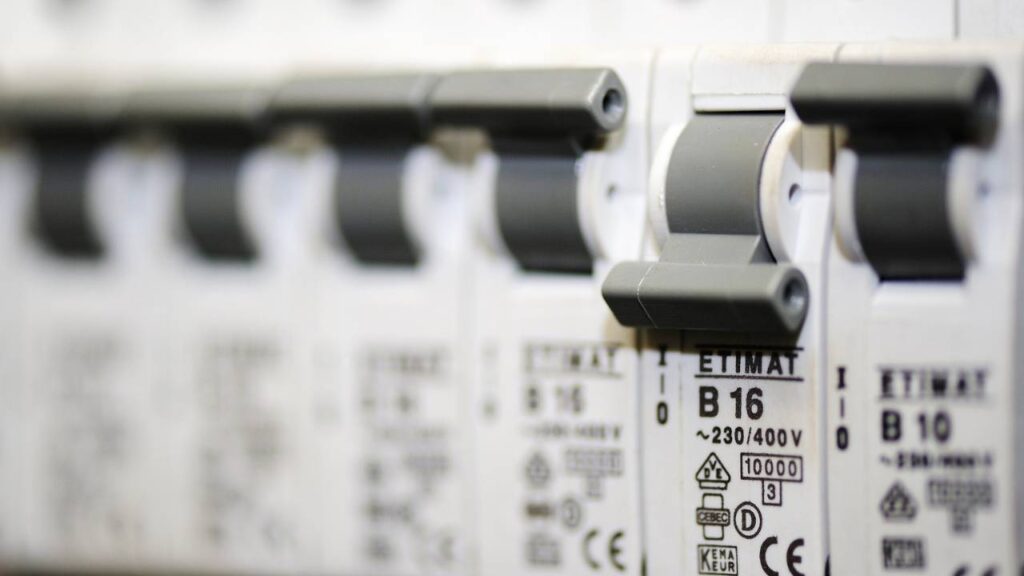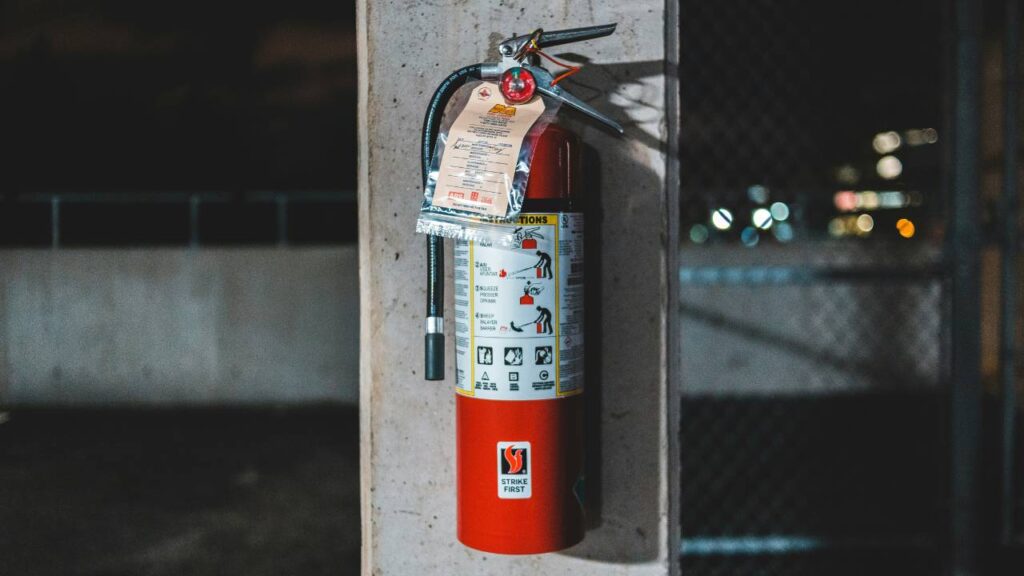Nowadays, having the right certifications can make the difference between landing an interview and having your CV overlooked. Across numerous sectors – from construction and manufacturing to healthcare and IT – employers are increasingly prioritising candidates with verifiable safety credentials. This trend reflects both stricter regulatory requirements and a growing corporate emphasis on workplace safety culture.
The good news is that many valuable safety certifications don’t require lengthy academic commitments. Short, focused courses can provide job-seekers and career-switchers with practical skills that immediately enhance employability. For those already employed, these same certifications often open doors to promotion opportunities or expanded responsibilities.
Why Safety Certifications Are Key to Fast-Track Career Growth
Safety certifications have become powerful career accelerators for several compelling reasons. First, they represent a concrete, verifiable skill set that employers can immediately recognise and value. Unlike generic qualifications, safety certifications directly address compliance requirements that businesses must meet to operate legally.
For job seekers, this translates to distinct advantages in the hiring process. Many employers use safety certifications as initial screening criteria, especially for roles with any safety-related responsibilities. Having the right certification can move your application to the “interview” pile, while equally qualified but uncertified candidates may be overlooked.
For those already employed, safety certifications frequently lead to internal advancement opportunities. As organisations face increasing pressure to maintain robust safety programs, employees with relevant certifications become valuable internal resources. This often translates to expanded responsibilities and corresponding salary increases.
In many regulated sectors, holding recognised safety qualifications or supporting credentials such as ISO certification can also serve as proof of compliance and quality assurance.
The freelance and consulting markets also offer lucrative opportunities for safety-certified professionals. Many small to medium-sized businesses cannot justify full-time safety personnel but periodically require certified individuals for inspections, training, or compliance documentation.
When selecting a safety course, consider both immediate job requirements and longer-term career trajectory. Industry-relevant certifications that align with your target sector will yield the strongest results. Let’s explore some of the most valuable options across different industries.
Portable Appliance Testing (PAT) Certification

For those looking to get certified quickly, portable appliance test courses offer a focused entry point into workplace safety compliance with minimal prerequisites. These courses typically run from one to three days and equip participants with the knowledge and practical skills to test electrical appliances for safety and compliance with relevant regulations.
PAT certification is particularly valuable because it addresses a ubiquitous workplace safety requirement. Nearly every business environment contains portable electrical equipment that requires regular safety verification – from office computers and kitchen appliances to industrial tools and medical equipment.
The certification process generally covers:
- Legal requirements and standards
- Electrical safety principles
- Equipment classification
- Visual inspection techniques
- Testing procedures using PAT equipment
- Documentation and record-keeping requirements
Upon completion, certified individuals can immediately offer testing services as independent contractors or add this valuable skill to their existing role. Many facilities managers, maintenance technicians, and compliance officers find that adding PAT certification significantly enhances their employability and internal value.
The Health and Safety Authority (HSA) in Ireland has established clear guidelines regarding electrical equipment safety in workplaces. These regulations create ongoing demand for certified testers across all sectors. Additionally, many insurance policies now specifically require documented PAT testing, further driving employer demand for this certification.
Entry-level PAT courses typically cost between €200-€350, making them one of the most accessible safety certifications with immediate practical applications. Most training providers offer both scheduled group courses and on-site options for companies looking to certify multiple employees.
Manual Handling & Safe Pass Training
Two of the most widely required safety certifications in Ireland are Manual Handling and Safe Pass training – both offering exceptional employment value relative to their short duration and modest cost.
Safe Pass certification is effectively a mandatory entry requirement for anyone working in construction in Ireland. This one-day program, developed by SOLAS (formerly FÁS), covers essential construction site safety awareness. The resulting certification is valid for four years and is checked regularly during site inspections.
The course typically covers:
- Health and safety legislation
- Accident prevention
- Working at heights
- Safe use of vehicles and equipment
- Manual handling basics
- Personal protective equipment (PPE)
- Health and hygiene
Beyond construction, Safe Pass is increasingly requested in adjacent sectors like facilities management, utilities, and manufacturing. At approximately €100, it represents one of the most cost-effective certifications for improving employability in these sectors.
Manual Handling certification, meanwhile, extends across virtually all industries where employees may need to move or handle objects as part of their duties. This includes healthcare, retail, warehousing, manufacturing, and hospitality.
The typical one-day course covers:
- Relevant legislation and employer/employee responsibilities
- Spine anatomy and injury prevention
- Risk assessment for lifting tasks
- Proper lifting and carrying techniques
- Practical demonstrations and assessment
Manual Handling certification generally costs €70-€100 and remains valid for three years. Many employers consider this certification mandatory for new hires in relevant positions, making it a valuable addition to any job-seeker’s credentials.
Fire Safety & Emergency Response Training

Fire Safety certification has emerged as another universally valuable qualification across all workplace environments. These one-day courses equip participants with practical knowledge regarding fire prevention, detection, evacuation procedures, and the correct use of firefighting equipment.
Particularly valuable for those in management, hospitality, healthcare, and public-facing roles, fire safety certification demonstrates competence in critical emergency situations. Many organisations designate certified individuals as fire wardens – roles that often come with additional responsibility allowances.
Typical course content includes:
- Fire legislation and regulatory requirements
- Fire triangle and prevention strategies
- Types of fire extinguishers and their appropriate use
- Practical fire extinguisher demonstrations
- Emergency evacuation procedures and planning
- Fire alarm systems and maintenance
Beyond employability benefits, fire safety certification (costing approximately €100-€150) often qualifies individuals to conduct basic workplace fire safety training for colleagues – an additional skill that can enhance internal promotion prospects.
For those seeking more advanced qualifications, courses in Emergency First Response and Occupational First Aid provide complementary skills that are highly valued across all industries. These certifications typically require 1-3 days of training and remain valid for 2-3 years.
Electrical Safety Awareness Training
While PAT testing focuses specifically on portable appliance safety, broader Electrical Safety Awareness training addresses the wider spectrum of electrical hazards in workplace environments. This training is valuable across virtually all industries but is particularly critical in manufacturing, facilities management, construction, and maintenance.
The importance of electrical safety training for employees goes beyond compliance – it directly impacts workplace safety, equipment longevity, and operational continuity. Organisations with comprehensive electrical safety programs typically experience fewer accidents, reduced equipment downtime, and lower insurance premiums.
Standard one-day electrical safety awareness courses typically cover:
- Basic electrical principles and terminology
- Common electrical hazard identification
- Safety legislation and standards
- Lockout/tagout procedures
- Safe work practices around electrical equipment
- Emergency response to electrical incidents
This certification (typically €150-€250) is particularly valuable for maintenance technicians, facilities managers, and supervisors across all industries. For individuals seeking career advancement in these areas, electrical safety awareness certification demonstrates a commitment to a safety culture that employers increasingly prioritise.
More specialised variants of this training exist for specific industries, including construction, industrial settings, and laboratory environments. These tailored programs address industry-specific equipment and procedures while maintaining core safety principles.
Industry-Specific Training – The IT Sector Example

While many safety certifications have cross-industry applications, sector-specific safety training can provide particular advantages for those targeting specific career paths. The IT sector offers an excellent example of an industry with specialised safety requirements that extend beyond general workplace safety.
In fact, electrical safety is particularly important in IT support, where even low-voltage equipment can pose significant hazards if improperly managed. Data centres, server rooms, and network infrastructure environments present unique challenges involving power distribution units, uninterruptible power supplies, and dense cabling installations.
Specialized IT safety courses typically cover:
- Electrostatic discharge (ESD) prevention
- Server room safety protocols
- Cable management best practices
- Power distribution safety
- Fire suppression systems in IT environments
- Equipment installation standards
These specialised certifications (ranging from €200-€500) can significantly enhance employability for IT support professionals, network engineers, and data centre technicians. Many major IT employers explicitly prefer candidates with formal safety training specific to technology environments.
Similar specialised safety training exists for other sectors, including healthcare (focusing on patient handling, infection control, and medical equipment safety), manufacturing (addressing machinery lockout procedures and hazardous materials handling), and logistics (covering warehouse equipment operation and loading dock safety).
Conclusion
Safety certifications are a fast, practical way to boost your employability across a range of industries in Ireland. With short course durations and affordable pricing, they offer an efficient route to gaining in-demand skills that employers actively seek – whether you’re entering a new field or aiming for career progression.
Starting with widely recognised options like PAT Testing or Safe Pass can open doors quickly, while sector-specific training lets you tailor your qualifications to your career goals. Investing in the right certification today can give you a competitive edge and position you as a valuable asset in any safety-conscious workplace.